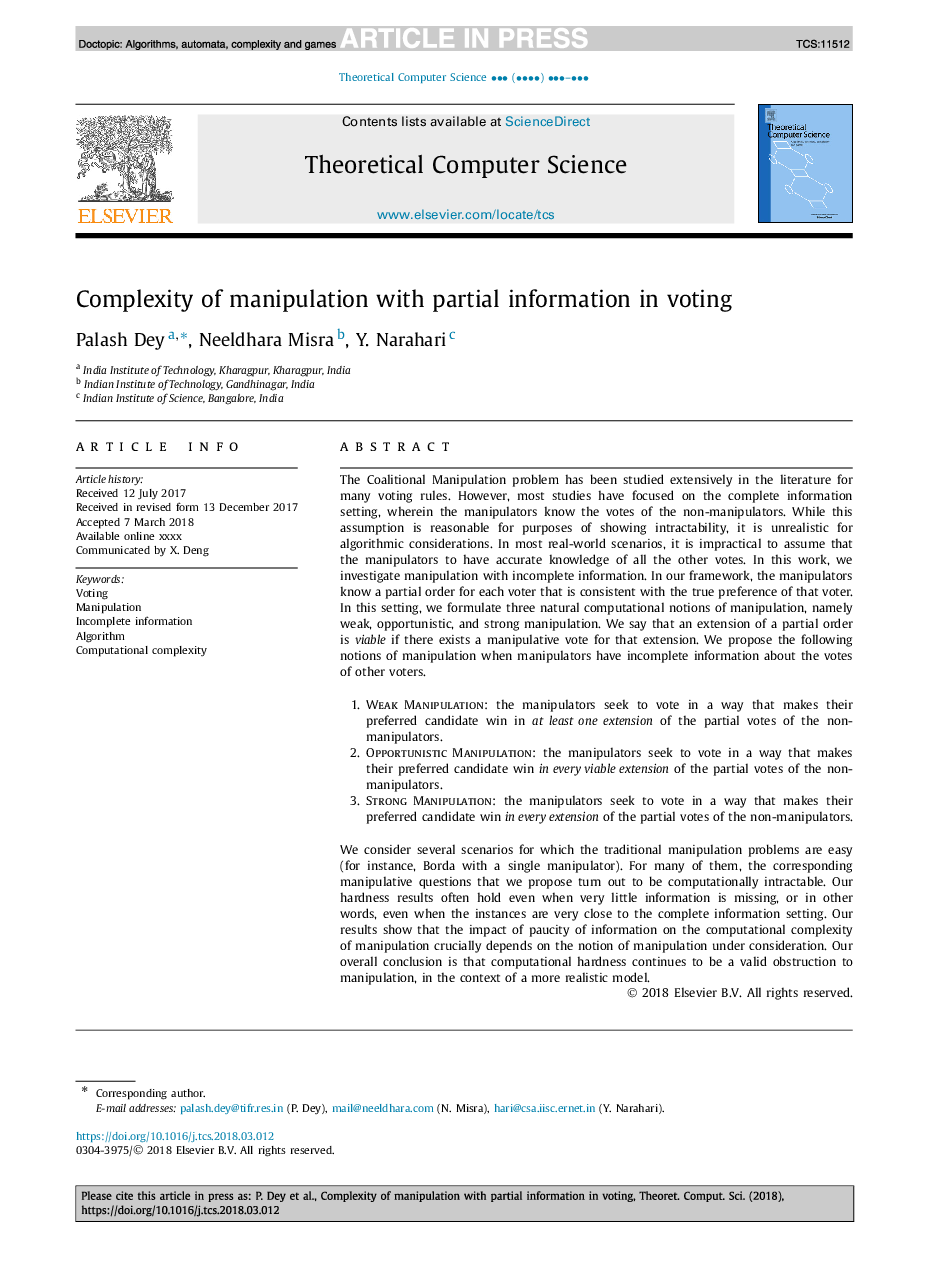| Article ID | Journal | Published Year | Pages | File Type |
|---|---|---|---|---|
| 6875518 | Theoretical Computer Science | 2018 | 22 Pages |
Abstract
The Coalitional Manipulation problem has been studied extensively in the literature for many voting rules. However, most studies have focused on the complete information setting, wherein the manipulators know the votes of the non-manipulators. While this assumption is reasonable for purposes of showing intractability, it is unrealistic for algorithmic considerations. In most real-world scenarios, it is impractical to assume that the manipulators to have accurate knowledge of all the other votes. In this work, we investigate manipulation with incomplete information. In our framework, the manipulators know a partial order for each voter that is consistent with the true preference of that voter. In this setting, we formulate three natural computational notions of manipulation, namely weak, opportunistic, and strong manipulation. We say that an extension of a partial order is viable if there exists a manipulative vote for that extension. We propose the following notions of manipulation when manipulators have incomplete information about the votes of other voters.
Related Topics
Physical Sciences and Engineering
Computer Science
Computational Theory and Mathematics
Authors
Palash Dey, Neeldhara Misra, Y. Narahari,
